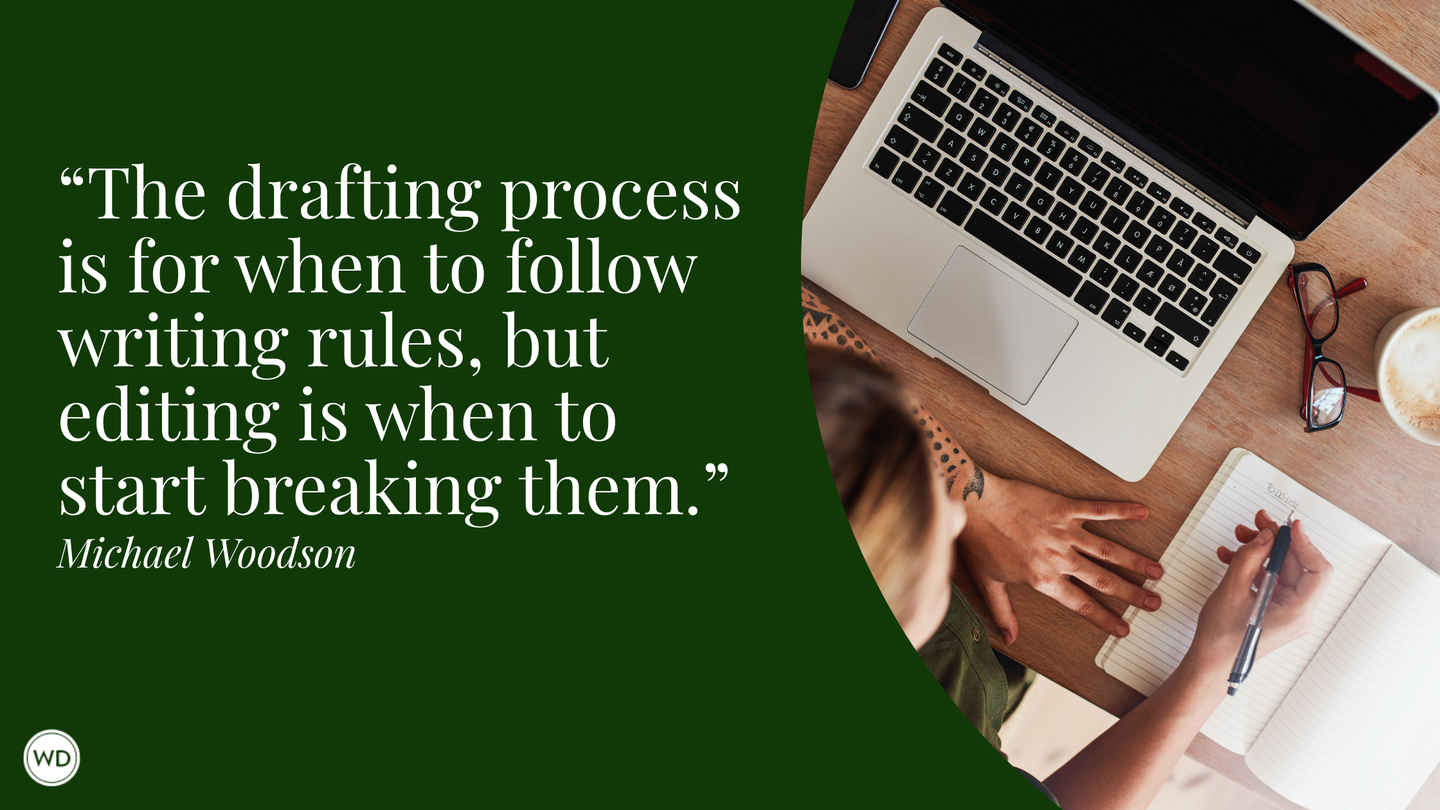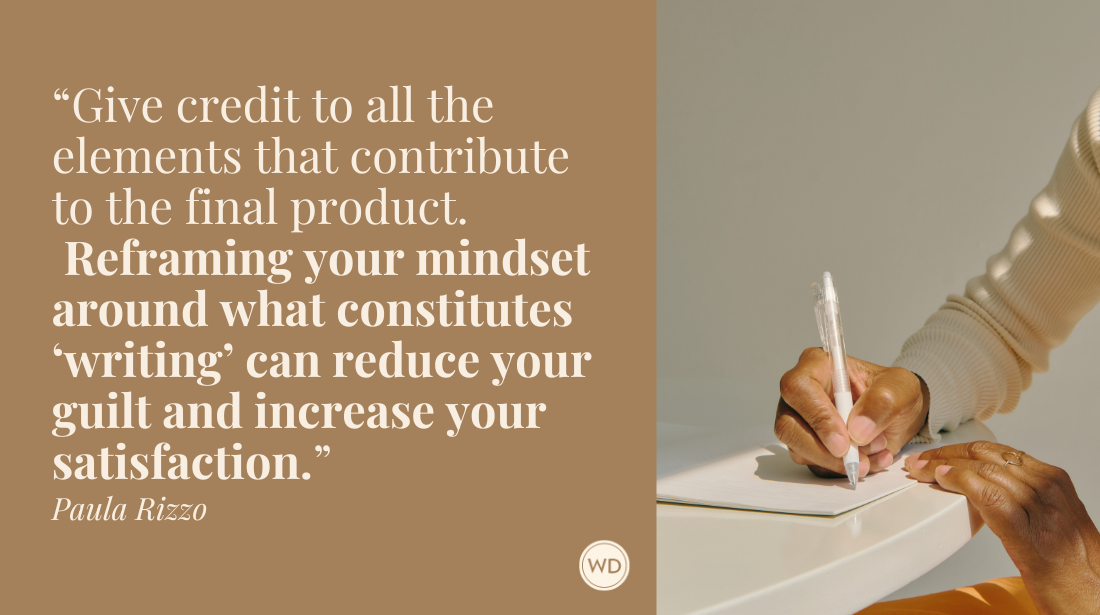Deadline in the Midst of Disaster: Meeting Writing Goals When Life Falls Apart
Let’s face it; our best plans don’t always stay perfect. Author and speaker Nicole S. Palmer shares seven strategies for meeting writing goals (and handling deadlines) … even (and especially) when life falls apart.
Lately it feels like the world is falling apart. Every day, headlines bring fresh turmoil from political conflicts and economic instability, to natural disasters. Yet as writers, we’re expected to create, analyze, or meet deadlines amid this relentless chaos. But how do you actually stay focused on your manuscript, article, or creative work when the outside world is in shambles?
The simple answer is resilience. So whether you're on deadline for a major project or simply trying to maintain your writing practice, here are seven strategies to keep moving forward even when the world feels like it’s unraveling.
1. Accept the reality of distraction
Ignoring the world’s turmoil is nearly impossible, because the news cycle is designed to keep us engaged, with constant updates, urgent alerts, and emotionally charged discussions. Add to that the weight of real-world consequences, like social injustices, policy changes, or economic downturns that affect our lives directly, so it’s no surprise that focusing on writing can feel like a losing battle.
Instead of fighting distraction, acknowledge it. Accept that your attention may be fragmented. Rather than striving for uninterrupted deep work, shift your focus to adaptability. If your usual long writing sessions feel out of reach, adjust your expectations and break tasks into smaller, manageable pieces. If staring at a blank screen feels daunting, switch to pen and paper, dictate ideas into a recording app, or use an outline-first approach. Allow yourself to write imperfectly, focus on getting words down first and refining them later.
And most importantly, accept that creative flow may look different during difficult times, productivity isn’t always about quantity but consistency.
2. Control your information diet
There’s a difference between being informed and being overwhelmed. While staying engaged with the world is important, drowning in breaking news and social media debates won’t serve your writing or your well-being. Curate your information intake so that it fuels rather than depletes you:
- Set designated times to check the news instead of refreshing your feed constantly.
- Use reliable sources instead of doom-scrolling on social media.
- Unfollow or mute accounts that heighten your stress or distract from your creative work.
A well-informed writer is powerful, but an emotionally drained writer may struggle to produce meaningful work.
3. Create a writing ritual to anchor yourself
Structure provides stability. If the world outside is unpredictable, let your writing routine be a place of refuge. Establishing rituals, even small ones, can help you transition into writing mode, no matter how much noise surrounds you:
- Start each session with deep breaths, meditation, or a short journaling exercise.
- Write at the same time or place each day, even if only for 15 minutes.
- Set clear, specific goals for each session to create momentum.
Even in short bursts, writing consistently builds resilience and keeps your creative muscles engaged.
4. Break your work into micro-goals
Long-term projects can feel overwhelming during times of crisis. Instead of focusing on completing a novel, a feature article, or a research-intensive essay, break your work into small, actionable goals.
- Instead of “Finish the book,” set a goal to write 500 words today.
- Instead of “Edit the whole article,” focus on refining three paragraphs.
- Instead of “Outline the entire project,” just draft two or three bullet points.
Micro-goals keep you progressing without the weight of an entire deadline looming over you.
5. Set boundaries to protect your creative space
Boundaries become essential when external chaos is overwhelming. Guarding your creative energy means being intentional about what you let in on multiple levels:
- Physical boundaries: If possible, carve out a dedicated writing space, free from news notifications or outside distractions.
- Digital boundaries: Use website blockers to limit access to social media during writing sessions.
- Emotional boundaries: Give yourself permission not to engage with every crisis in real-time. Your writing and well-being matter, too.
By setting clear boundaries, you not only create space for your creativity, you also protect your focus and preserve your energy.
6. Lean on your writing community
As writers we often work in isolation, but that doesn’t mean we have to navigate difficult times alone. Whether it’s an accountability partner, a critique group, or an online writing forum, connecting with other writers can offer support, motivation, and encouragement. So make some time to:
- Join virtual or in-person writing sprints to stay on track.
- Share your struggles with fellow writers - it’s likely they’re feeling the same way.
- Engage in discussions about how to write through difficult times, not despite them.
Community can help you maintain perspective and remind you that your words still have value, so don’t wait for a crisis to start building or seeking out community.
7. Reframe writing as an act of resistance and hope
Writing may feel insignificant when the world is in turmoil, but it’s far from that. Literature has always been a force for change, clarity, and resilience. So instead of seeing writing as trivial, recognize it as a contribution to something greater:
- Your novel might offer escapism or joy in a time of despair.
- Your article might shed light on an underreported issue.
- Your poetry might articulate what others feel but cannot express.
Writing is a way to document, process, and even influence the world around us. And creativity in times of crisis isn’t just an act of survival. It can be an act of defiance, hope, or even an act that shapes the future.
Just keep showing up
Deadlines don’t pause for world events, and neither does the need for stories, essays, and articles that make sense of the chaos. But writing is less about perfection and more about persistence. Some days will be productive. Others will feel impossible. But showing up, however imperfectly, is what keeps the work moving forward. So protect your energy, embrace small victories, and remember: Your words matter, now more than ever.
Nicole S. Palmer is a best-selling author, founding partner of independent publishing company Delnic Media, and host of 5-star rated podcast Black Womaning in Corporate America™. When she isn’t writing, she’s speaking, and she’s usually talking about race, identity, and equity.








